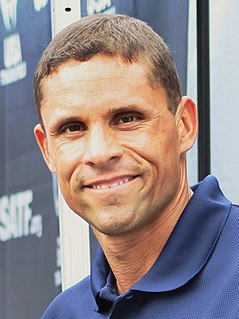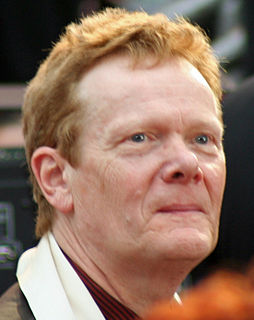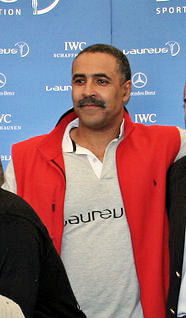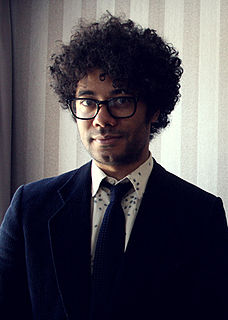A Quote by Dan O'Brien
I was a good decathlete until I got with a coach that really knew how to train specifically for the event... I'd really describe it as like being a juggler; you have ten balls and you're trying to get them all in the air at the same time.
Related Quotes
Sometimes I train in the middle of the night, all on my own. Can't sleep, don't want to sleep, get up, go to the gym, work. This is early for me, being here at half ten in the morning, this is really early, and I'm only here because I screwed up yesterday and kept you hanging around. Other times I'll call up my wrestling coach, or my jiu jitsu coach, or my deep-tissue guy, and want to really focus on one part of what I do. I train in all these different disciplines.
At the center, where a cuckoo bird would live in a more traditional timepiece, is the juggler. Dressed in harlequin style with a grey mask, he juggles shiny silver balls that correspond to each hour. As the clock chimes, another ball joins the rest until at midnight he juggles twelve balls in a complex pattern.
After midnight the clock begins once more to fold in upon itself. The face lightens and the clouds return. The number of juggled balls decreases until the juggler himself vanishes.
By noon it is a clock again, and no longer a dream.
We get to get into the nitty-gritty and the minutiae of the way they relate now, and that's really valuable. We just have to make sure we don't repeat ourselves and we plot this thing so it doesn't dead end too much, and so that's the challenge really. It's like, how do you keep those balls in the air and make it exciting still?
Trying to describe the process of becoming an alcoholic is like trying to describe air. It's too big and mysterious and pervasive to be defined. Alcohol is everywhere in your life, omnipresent, and you're both aware and unaware of it almost all the time, all you know is you'd die without it, and there is no simple reason why this happens, no single moment, no physiological event that pushes a heavy drinker across a concrete line into alcoholism. It's a slow, gradual, insidious, elusive becoming.
When I do plays in New York and do eight shows a week, you have the same feeling. Three of them are terrible, four of them are okay and one is really good. It's hard to say what accounts for the really good one or for the terrible ones, but you end up trying to remanufacture whatever worked for the good one, like eating a tomato. I ate a tomato and the show was good, but that of course is not how it works.
You'd be surprised how quickly our identities evaporate when we were able to connect with people on a very personal level because we're all really trying to chase the same dream, we are looking for the same thing, we're raising our kids, we're just trying to get along. And, right now we are able to show people, hey, I'm just a human being like you are, I've got to take care of my kids and my family just like you, how can I help you?
It's cool. You can laugh about it, but at the same time you can't really get caught up in it because you're here for a job and it's to win football games. Being on this team, being with the head coach here and the quarterback we have keeps you humble. It keeps you hard working. You can laugh and giggle about stuff, but then at the same time you've got to make sure you're prepared and practicing hard still.
I might ask about the first time a person heard a song that they really responded to, like when I asked Mos Def when he first "got" hip-hop and he went into this memory about how hearing someone rap really affected him. He wasn't simply remembering the event. It was almost like he was occupying that space again. When you can really transport an interview subject like that, your readers can feel it and it helps them to connect with the artist.





































